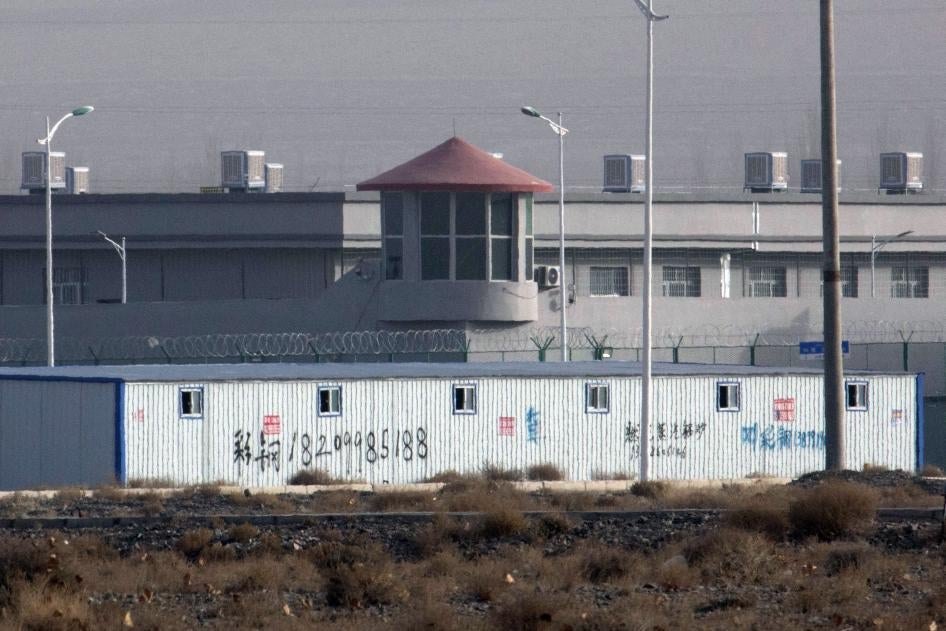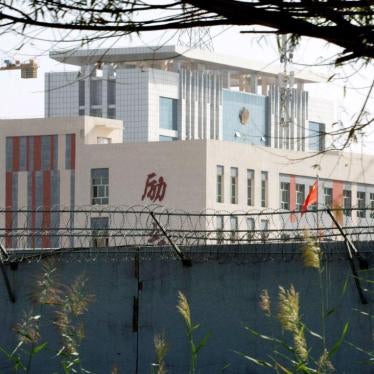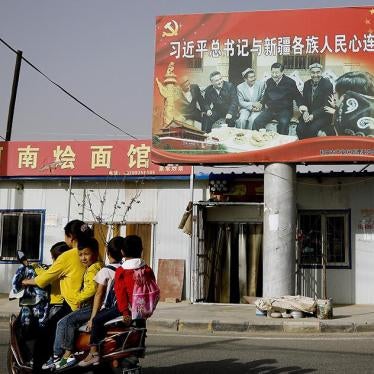Religious freedom, family separations, state use of surveillance technology: these are issues that fuel many Americans’ political engagement. But they are also key aspects of the Chinese government’s repression of 13 million Uyghurs and other Turkic Muslims in the northwest region of Xinjiang.
Chinese authorities have long regarded this community’s distinct culture, language, and religion as a threat, invoking the U.S. War on Terror to insist that China faced a major terrorist threat. Over the past decade, Beijing adopted policies ranging from restrictions on whether men could wear long beards to banning certain names that might “exaggerate religious fervor.”
Unlike most governments, which are content to let refugees flee, China increasingly hunted down and pressed other countries to return Uyghurs to Xinjiang, where they faced severe persecution. In response to a number of acts of violence - no evidence suggests they are linked to organized terrorist groups outside the country - Beijing has instead opted to punish an entire ethnic group.
In May 2014, China launched its “Strike Hard Campaign against Violent Terrorism” in Xinjiang. In late 2016 it moved a hardline Chinese Communist Party official, Chen Quanguo, from Tibet, where he had introduced a series of repressive policies on another group whose religious beliefs irk the government, to Xinjiang. We now know from New York Times reporting on leaked Chinese government documents that authorities at the national and local level were already under way with a plan to reeducate people across the region. At the time what we could see was the pain and fear of diaspora Turkic Muslim communities around the world, suddenly unable to contact family members inside Xinjiang.
Currently some 1 million Turkic Muslims are detained, according to estimates by various human rights groups and academics, wholly outside any legal regime, simply on the basis of their identity in so-called political education camps. There they are reportedly forced to abandon their religion and language, spend hours studying Party dogma and Xi Jinping Thought, and face torture and ill-treatment if they resist. Release appears to be predicated solely on convincing the authorities that you are a loyal supporter of the Party without conflicting ties.
But low-tech surveillance isn’t enough for China’s government. Across the country officials are increasingly relying on tools like facial recognition, big data analyses, and biometrics to track individuals’ behavior. Earlier this year we at Human Rights Watch reverse-engineered an app used by Xinjiang police. We found that perfectly legal behavior - including which door you use to enter and leave your home and the extent to which you socialize with your neighbors - is not only tracked, but used to assess whether you are suspicious and require further investigation or possible detention.
One of the most devastating aspects of state repression in Xinjiang is the separation of children from their families. Since November 2016, Xinjiang authorities decreed that children who “have lost their parents or whose parents cannot be found” must be placed in state care, according to our research and reporting by international media outlets. Some children whose parents are detained are themselves institutionalized, even when family members, such as grandparents, were willing to care for them.
Many parents don’t know what has happened to their children. Abdul Aziz, who now lives in Turkey, has not been able to make contact with his four children, all under age 13, since his wife was detained in a political education camp in July 2017. He told us that they are constantly in his thoughts: “Where are they now? Are they dead? Are they sick? The only thing I want in this life in this world is to see my wife and my children one more time.”
The website of the Chinese consulate in Houston proclaims: “Xinjiang Affairs Allow No Interference” – fortunately, the U.S. government has rejected that idea. It has repeatedly challenged Chinese authorities over their gross violations of Uyghurs’ human rights, and imposed sanctions on the police and Chinese technology companies alleged to be involved in repression across Xinjiang.
But the U.S. could go further: it could expedite asylum claims and challenge China over the harassment of diaspora communities in the U.S. It could impose targeted sanctions through the Global Magnitsky Act on individuals like Chen Quanguo for their role in human rights violations, and the Senate could swiftly pass pending legislation to address the Xinjiang crisis. Americans concerned about rights should readily support clear action that would benefit the rights of others.









